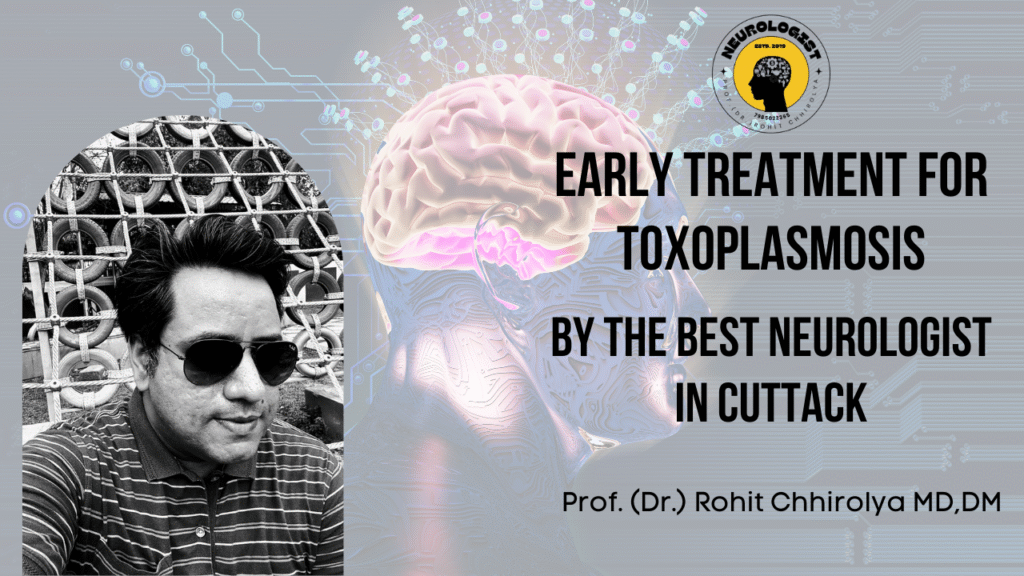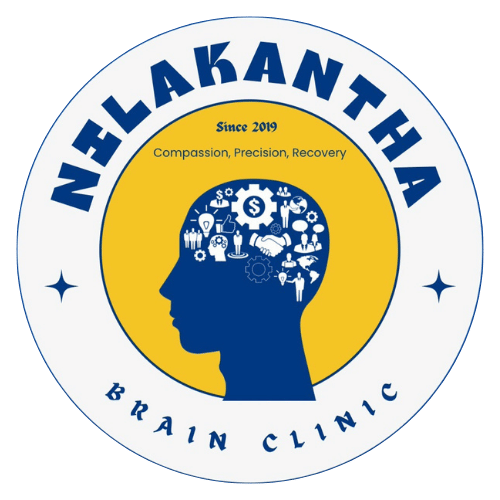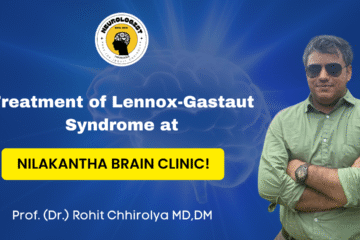
Toxoplasmosis, caused by the parasite Toxoplasma gondii, is often a silent infection in healthy individuals. But when it invades the brain of immunocompromised patients, it becomes a neurological emergency requiring immediate, specialized intervention. In Cuttack, accessing expert neurology care isn’t just important—it’s lifesaving. This guide explains the critical risks, symptoms, and why partnering with the best neurologist in Cuttack is non-negotiable for vulnerable patients.
What is Neurological Toxoplasmosis?
Toxoplasma gondii cysts can lie dormant for years. However, in people with weakened immune systems—such as those with HIV/AIDS, organ transplant recipients, or patients undergoing chemotherapy—the parasite can reactivate. Unlike typical infections, reactivated toxoplasmosis frequently targets the brain (cerebral toxoplasmosis), causing severe, potentially fatal inflammation and mass lesions.
Key Fact: Up to 50% of HIV patients with advanced immunosuppression (CD4 counts <100 cells/μL) who are Toxoplasma-seropositive are at risk for cerebral toxoplasmosis without preventive therapy (CDC, 2023).
Why the Brain is Vulnerable in Immunocompromised States
- Blood-Brain Barrier Breakdown: Immune suppression weakens the barrier protecting the brain.
- Latent Cyst Reactivation: Dormant cysts in brain tissue reactivate when immune surveillance fails.
- Rapid Replication: Uncontrolled parasite growth forms inflammatory brain lesions (abscesses).
Symptoms: When Toxoplasmosis Attacks the Nervous System
Neurological involvement manifests aggressively. Key red flags include:
- Severe, persistent headaches (often unresponsive to usual painkillers)
- Fever and unexplained confusion/disorientation
- Seizures (new-onset in an adult is always an emergency)
- Focal neurological deficits: Weakness/numbness on one side, speech difficulties (aphasia), vision problems
- Altered mental status: Drowsiness, personality changes, coma
- Movement disorders or loss of coordination
Urgent Note: If an immunocompromised person in Cuttack experiences ANY of these symptoms, consult a neuro doctor near me immediately. Delays drastically worsen outcomes.
Diagnosis: Precision is Critical
Diagnosing cerebral toxoplasmosis requires specialized neurology expertise:
- MRI/CT Brain: Reveals characteristic “ring-enhancing” lesions, often multiple.
- Blood Tests: IgG antibodies confirm past exposure (though not active disease).
- CSF Analysis: Lumbar puncture checks for parasite DNA (PCR test).
- Biopsy (Rarely): Brain tissue biopsy if imaging is atypical or treatment fails.
Misdiagnosis as brain tumor, stroke, or other infections (like TB) is common without an experienced neurology doctor in Cuttack.
Treatment: Aggressive & Sustained Therapy
- Acute Phase (6+ weeks):
- First-Line: Pyrimethamine + Sulfadiazine + Folinic acid (Leucovorin).
- Alternatives: Clindamycin, Trimethoprim-Sulfamethoxazole (if sulfa allergy).
- Steroids: Used short-term ONLY for severe swelling threatening brain herniation.
- Chronic Suppression (Lifelong in many cases):
- Lower-dose maintenance therapy prevents relapse.
- Immune restoration (e.g., ART in HIV patients) is crucial.
- Seizure Management: Antiepileptic drugs (AEDs) as needed.
Prevention is Paramount for High-Risk Patients
- Primary Prophylaxis: Trimethoprim-sulfamethoxazole (Bactrim) for HIV+ patients with CD4 <100 cells/μL who are Toxoplasma IgG+.
- Avoid Exposure:
- Cook meat thoroughly (>165°F/74°C).
- Wash fruits/vegetables rigorously.
- Avoid cat litter boxes; wear gloves when gardening.
- Drink filtered/boiled water.
Why Choosing the Best Neurologist in Cuttack is Non-Negotiable
Cerebral toxoplasmosis demands rapid, nuanced management by specialists who:
- Accurately interpret complex brain imaging.
- Navigate drug interactions (especially with HIV/transplant meds).
- Manage seizures, raised intracranial pressure, and coma.
- Provide lifelong monitoring for relapse prevention.
In Cuttack, Odisha, Dr. Rohit Chhirolya and the team at Nilakantha Brain Clinic offer this critical expertise. Recognized among the Top neurologist in Cuttack, Dr. Chhirolya (DM Neurology) specializes in neuro-infections and immune-mediated brain disorders.
Finding the Best Neurology Specialist in Cuttack
If you search “best neurologist near me” or “neuro doctor in Cuttack,” prioritize:
- Sub-specialization: Look for experience in CNS infections.
- Advanced Diagnostics: Access to MRI/CT, EEG, CSF analysis.
- Multidisciplinary Care: Coordination with infectious disease experts.
- Emergency Access: Timely appointments for urgent cases.
Your Cuttack Neurology Resource:
- Clinic: Nilakantha Brain Clinic
- Address: Cuttack, Odisha
- Emergency Contact: 7985022365
- Consult the Best: Dr. Rohit Chhirolya, DM (Neurology)
Cuttack Neurology Doctor List: Trusted Experts
For neurotoxoplasmosis care, consider these highly-regarded specialists:
- Dr. Rohit Chhirolya (DM Neurology): Expertise in CNS infections, neuroimmunology.
- For an updated cuttack neurology doctor list, contact the Odisha Neurological Association or trusted hospitals.
Don’t Wait: Act Now to Protect Brain Health
Neurological toxoplasmosis progresses rapidly. Immunocompromised patients in Cuttack experiencing headaches, fever, confusion, or seizures must seek immediate evaluation. Early intervention by the best neurologist doctor in Cuttack significantly improves survival and reduces disability.
Schedule a Consultation Today:
- Call: 7985022365
- Book Online: Nilakantha Brain Clinic Contact
- Follow for Brain Health Tips:
Resources for Further Reading:

